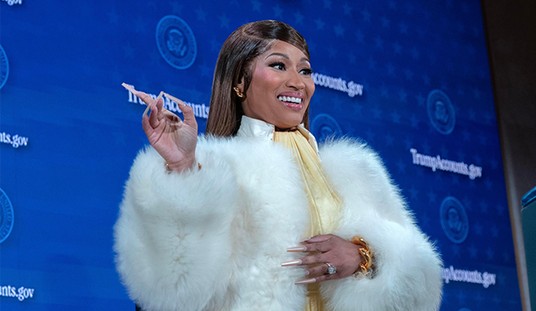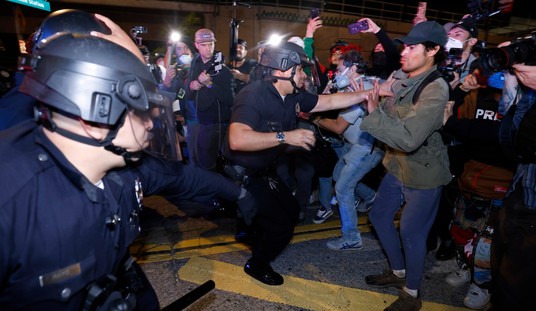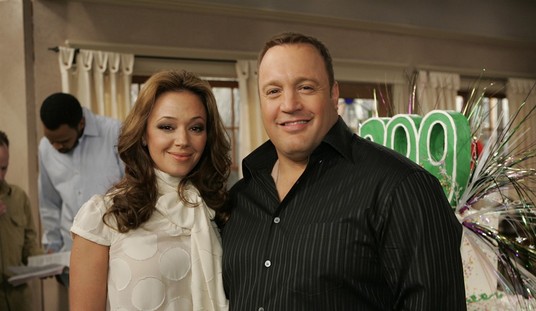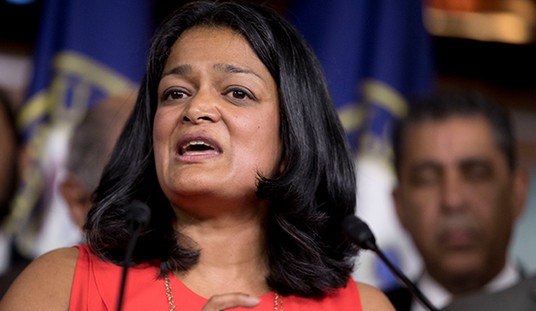
From left, Sen. Michael Bennet, D-Colo., Sen. Kirsten Gillibrand, D-N.Y., former Housing and Urban Development Secretary Julian Castro, Sen. Cory Booker, D-N.J., former Vice President Joe Biden, Sen. Kamala Harris, D-Calif., Andrew Yang, Rep. Tulsi Gabbard, D-Hawaii, Washington Gov. Jay Inslee and New York City Mayor Bill de Blasio are introduced before the second of two Democratic presidential primary debates hosted by CNN Wednesday, July 31, 2019, in the Fox Theatre in Detroit. (AP Photo/Carlos Osorio)
Obviously, when CNN announces it will host a seven-hour town hall on climate change featuring ten of the Democratic candidates for president, the first response that comes to mind is “Does CNN just hate ratings?”
The answer is that either CNN is committing either an act of journalism or, as its critics will call it, an act of activism. Either way, it is not difficult to see the logic: Climate change is a key issue for many of these candidates, and Democratic voters should get more than an ad or a soundbite on the subject.
Seven hours is, for a viewer, an intimidating length. CNN was kind enough to release a rough schedule* of what the town hall will look like, so you would only need to tune in for candidates** of interest to you*** if you wanted to see what they had to say.
- Former Housing and Urban Development Secretary Julián Castro will be interviewed by CNN’s Wolf Blitzer at 5 p.m. ET
- Businessman Andrew Yang, who will also be interviewed by Blitzer, will come on at 5:40 p.m.
- California Sen. Kamala Harris will be interviewed by CNN’s Erin Burnett at 6:20 p.m.
- Minnesota Sen. Amy Klobuchar, who will also be interviewed by Burnett, will appear at 7 p.m.
- Former Vice President Joe Biden will be interviewed by CNN’s Anderson Cooper at 8 p.m.
- Vermont Sen. Bernie Sanders, who will also be interviewed by Cooper, will be on at 8:40 p.m.
- Massachusetts Sen. Elizabeth Warren will be interviewed by CNN’s Chris Cuomo at 9:20 p.m.
- South Bend, Indiana, Mayor Pete Buttigieg, who will also be interviewed by Cuomo at 10 p.m.
- Former Rep. Beto O’Rourke will appear with CNN’s Don Lemon at 10:40 p.m.
- New Jersey Sen. Cory Booker will also be interviewed by Lemon and will come on at 11:20 p.m.
What I find interesting is that the candidates have said that we have to act on climate change, but outside of “infrastructure” changes, there is very little talk of what would need to happen in order to accommodate the regulations needed to forces decreased carbon emissions in the private sector.
The reason that it is so interesting is that an aggressive environmental agenda probably played the biggest part in Hillary Clinton’s downfall in 2016.
When Obama was president, his administration was very active in combatting climate change through executive regulation. Even when he had both houses of Congress, he preferred to go about it executively. The Environmental Protection Agency and Obama’s executive orders would hurt coal miners, oil producers and refiners, and force companies to either take on massive costs in order to buy the equipment necessary to reduce emissions or just close down plants in order to save the money.
All of this would result in a massive loss of jobs, particularly at a time when the American economy couldn’t afford it. In all likelihood, this only exacerbated the job market issues Obama faced throughout his presidency. Jobs started to come back, but at a much slower pace than economists said would be necessary for the economy to fully recover.
By the time 2016 rolled around, many of those blue-collar workers who had lost jobs and never regained them, or had to work elsewhere, saw Hillary Clinton as a continuation of the Democratic policies that put them out of work in the first place. The fact that Donald Trump was not a Democrat and not beholden to those issues (as well as his adamant promise to bring those jobs back) made him a much more appealing candidate.
So obviously, there should be a question on September 4 to each of those candidates, asking if they can work toward environmental change without causing the same problems – especially if we are headed back toward a recession. How would the Democrats respond to this answer? Would Joe Biden stand by Obama’s actions, showing the working class he says he represents that he isn’t really on their side? Would Warren follow Clinton’s footsteps and focus on appealing to the intellectual class of the Democratic Party, ignoring the workers completely?
That’s the type of problem Democrats don’t yet seem to realize they’ll face. Environmentalism in politics necessitates the elimination of blue-collar jobs in the very areas that cost Clinton the 2016 election. The Democrats don’t have a solution to that, either, and it will end up costing them.
So, I think I do want to watch this town hall. I want to see if these answers exist. If they do, then we have a good set-up for a debate. If they don’t, then the Republicans have their ads for the Rust Belt. And, most importantly, some liquor company will have my money because I’ll need a lot of their product to make it through seven hours of this.
*As an aside, I would like to know what Jake Tapper might have said to get out of this because if I were him I would have looked at the proposal and laughed and laughed as I told them “No” along with a few colorful words for emphasis. But, alas, I am not Tapper, and I will never have the opportunity to say “No” to something like this, which may or may not be a blessing in disguise.
**A moment of silence for Jay Inslee, whose sole issue was climate change. The moment he drops out, CNN announces this town hall. The Good Lord works in mysterious ways.
***Where is Marianne Williamson? This is an outrage.














Join the conversation as a VIP Member